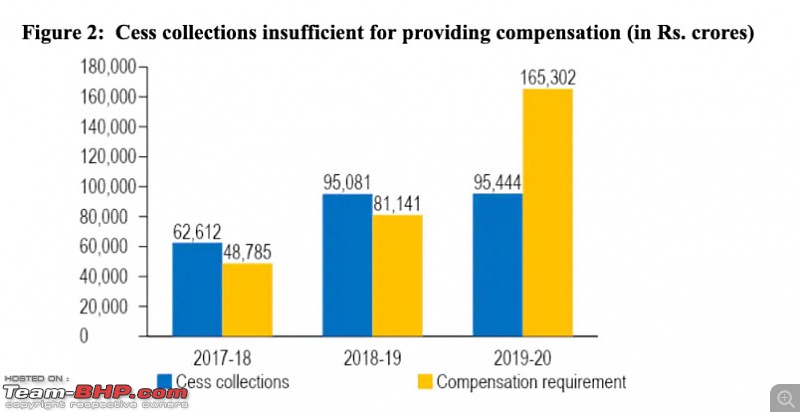Quote:
Originally Posted by Samurai  There is very easy way find out if someone understands economics. Ask their opinion about gold standard. If they are for gold standard, they don't understand economics, at least not the post 19th century economics. |
Somewhere in US, Peter Schiff must be sneezing the hell out.



My update in previous post dint come thru, so creating as a new post.
Quote:
Originally Posted by Samurai  Gold standard could not keep with wealth generation since 19th century. After industrial revolution, the GDP of most countries started outstripping the value of their gold reserves. So it started hampering their wealth generation.
Let's say Rashtra starts making a fast moving consumer product RP that suddenly becomes very popular around the world. The product RP is priced at 10R per item, and millions of people around the world want to buy RP. But there is only million R in circulation, most of it in the hands of the citizens of Rashtra.
If a foreigner wants to buy a product of Rashtra, first they have to buy the R currency from the Rashtra central bank, then use it to buy from RP manufacturer. But the central bank only had one lakh R with them and it gets sold in a day, which is used to buy 10000 RPs.
Looking at the demand, RP maker has produced 1 million RPs. And there are millions of foreign customers who are waiting to buy those RPs. Except, no more transactions are possible because Rashtra central bank cannot print anymore R, thanks to gold standard. Duh!
If Rashtra had fiat currency, they can keep printing fiat currency to keep up with the demand without losing value. Then RPs can be sold in unlimited quantity. Now the central bank will be flush with currencies of other countries, which they can use to buy stuff from other countries. Fiat currency thus enables wealth generation without restriction. The supply of R can be increased or decreased by the central bank based on demand. Gold standard didn't give this flexibility. |
It is slightly different in operation from this.
In this above scenario, any foreign customer who wants to buy R, simply needs to give Gold (or something convertible to gold) to the central bank and they will give R in return.
The key with gold standard era was that virtually everybody had gold standard, and all currencies are directly convertible to gold. That is a logical extension of using gold coins for transaction and up to the time the system broke up, the idea was to just use money as a denomination on gold.
Lets say Ford started making cars and somebody in UK wanted to buy that. Thru a "capital account of sorts" they will transfer pounds to US, on the basis of which US bank will provide dollars to be used to buy the Ford car.
Since pound = some factor * gold, US bank will take that and buy more gold with that. Accounting that gold, it will print more dollars.
Of course, this is the idea. I am oversimplifying it and nation states used to fudge these all the time because there was no international standard.
Plundering and colonialisation was the logical extension of "how to create more wealth".
But transnational money flow was not directly a function of the amount of gold the recipient nation held -- best example is US which had spectacular bubbles in stock market continuously. There are other examples like Argentina that boomed on agricultural produce like beef as trade became more possible.
That era was very very globalisation friendly for movement of people and movement of capital; this is why there are all kinds of diaspora in places like US.
The issue with gold standard was slightly different. When technological bursts happen, essentially you will run into deflationary cycles. Having a gold standard meant that there is a price for the intrinsic wealth of the world. Meaning, as a transacting circuit like US-UK-EU etc, their total growth was limited by the speed with which mining can be done.
At any point in time, when a new item comes to the market, essentially it channels money away from other stuff. This is okay for normal times, but when technology disruptions like steam engine, car etc happens, the productivity increases and the rest of the society suffers from lack of money supply.
When that happens, the firms/producers will try to maintain profit by reducing wages. This in turn reduces sales further, and further reduced buying power, going into a deflationary vicious cycle. Unemployment, starvation etc for workers were very common.
This is also the economic reason behind the uptick in labor movement across the world in late 19th century and early 20th century.
 (3)
Thanks
(3)
Thanks

 (20)
Thanks
(20)
Thanks
 (3)
Thanks
(3)
Thanks

 (3)
Thanks
(3)
Thanks
 (5)
Thanks
(5)
Thanks
 (6)
Thanks
(6)
Thanks

 (4)
Thanks
(4)
Thanks


 (8)
Thanks
(8)
Thanks
 (2)
Thanks
(2)
Thanks
 (1)
Thanks
(1)
Thanks

 (5)
Thanks
(5)
Thanks








 ); so an appreciating currency will lower their burden whereas depreciating one will increase their burden. Of course, they may choose to repay out of hard currency earnings, but still the amount when translated into current market rates (it would need accounting somewhere?) there would be a difference.
); so an appreciating currency will lower their burden whereas depreciating one will increase their burden. Of course, they may choose to repay out of hard currency earnings, but still the amount when translated into current market rates (it would need accounting somewhere?) there would be a difference.